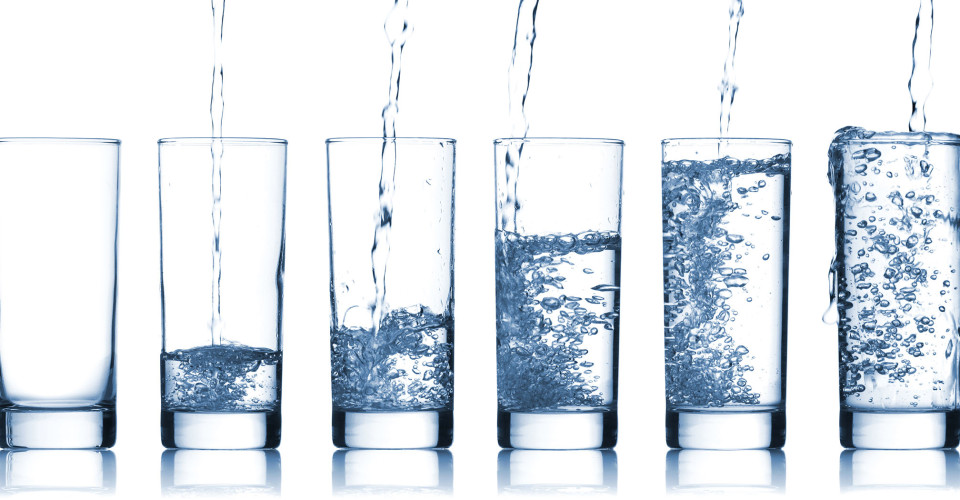We are more than 65% water. A decrease, even of 1.5%, will cause a decrease in the level of energy, concentration, change of moods, according to a study of the University of Connecticut. Although a lot of reasons for dehydration are obvious (a hot day, physical effort, lack of liquids in your diets), some causes are less known. We have a list of 14 reasons of dehydration:
Diabetes
The persons who suffer from diabetes, especially those who have not been diagnosed yet, run a high risk of dehydration. When the blood-sugar increases, the body tries to eliminate the excess glucose by increasing the urine volume.
Menstruation
The oestrogen and progesterone influence the hydration levels in the body, and their variations during the SPM require an increase in the quantity of water the body needs. Also, as for the women having abundant menstruation, the loss of fluids during the menstruation adds to the levels of dehydration.
Medication
Check the side effects of drugs. Many drugs have a diuretic effect. The blood pressure drugs are a common example. Moreover, any drug that has as secondary effect diarrhoea or vomiting has a dehydration risk if the person experiences these side effects.
Low-carbohydrate diets
The carbohydrates are stored in our body together with the fluids. This is why when we lose weight, we also lose “water” weight when we eliminate carbohydrates. Although it may look well on scales, it is not good news for the hydration level. Moreover, the carbohydrates in whole grain cereals absorb water, so their presence in the diet also helps with the water consumption.
Stress
When feeling stressed, the suprarenal gland secretes stress hormones. A constant pressure will exhaust your glands and will cause pp insufficiency. The problem occurs because this gland also produces aldosterone – a hormone that regulates the fluids and electrolytes in the body. Therefore, at once with the suprarenal exhaustion, the production of this hormone also decreases, causing dehydration. The immediate solution is to increase the volume of fluids, but on long term the best solution is to reduce the causes of stress.
Irritable bowel syndrome
This syndrome is anyway unpleasant and its symptoms (nausea and chronic diarrhoea) contribute to dehydration. Moreover, the persons having this condition have a diet that avoids water-rich foods, thus increasing the lack in the body.
Workouts
The post-workout dehydration does not occur only in professional sportsmen, but in any person doing exercise. When you sweat more than you drink, there is a risk of dehydration.
Pregnancy
If you feel bloated, it may be a result of the water retention as a protective measure against dehydration. During the pregnancy, the blood volume and heartbeats increase, which requires a better hydration. Also, the vomiting associated with the pregnancy nausea also contributes to the hydration level.
Aging
As we grow old, our body’s capacity to retain water decreases as well as the capacity to identify the thirst, which means that it becomes more and more difficult to maintain the body fluid level at a comfortable level. Try turning hydrating into a habit, even when you do not feel thirsty.
Dietary supplements
Just because they are ”natural”, this does not mean that they cannot affect the water circuit in the body. Many of the natural ingredients are diuretic. Check the side effects of the ingredients.
Altitude
When travelling at high altitudes, the body adapts by accelerating the breath, but also by increasing the volume of urine. Both demand the body’s water reserves.
Alcohol
Any consumption of alcohol dehydrates. Alcohol inhibits the antidiuretic hormone that would send back into the body part of the fluids ingested. At the same time, the cells become smaller and the water is ”sent” into the bladder, reducing the hydration level. As the alcohol makes it more difficult for the body to recognise the thirst and the tiredness, it is dangerously simple to reach critical levels of dehydration. These critical levels cause the next day hangover. Try to alternate the glasses of alcohol with glasses of still or, even better, natural sparkling water.
Low-fruit and vegetable diet
Half a plate of vegetables/ fruits may replace up to two glasses of water per day. If you cannot reach the recommended portion (5 vegetables or fruits) try to compensate for the lack of fluids with water.
Breastfeeding
The breastfeeding is also a process of transferring water, besides proteins, minerals and other nutrients from the mother to the infant. This is why it is important for the mother to increase the consumption of fluids while breastfeeding in order to have a healthy flow of milk.
Taguri: aqua carpatica dehydration hydration mineral water water


Niciun comentariu